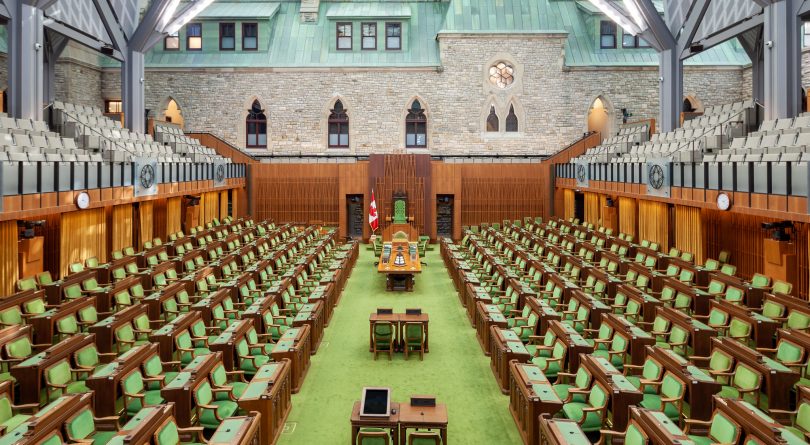A New Parliament Just Like the Old Parliament … but with Leadership in Play

Don Newman
September 24, 2021
Despite results that are almost a replica of the composition of the last Parliament, the election of September 20 could have a major impact going forward on the Liberals, Conservatives and New Democrats. All three parties could have new leaders before Canadians go to the polls again, and one of them faces the possibility of either splitting apart or at least facing competition from a new party.
The party with the greatest potential for post-election alterations is the Conservatives. Not only is their leadership in play, but the party in its current form could be under threat. The inability to capture an election many public opinion polls said two weeks before the vote was theirs to lose has put immediate pressure on leader Erin O’Toole. He is putting up an energetic fight to try and preserve his job but party members are now arguing in the media over whether he should be replaced. And energetic fight or not, O’Toole faces an early caucus vote on his future. Even if he survives, there’s an automatic leadership review at the party’s national convention in 2023.
That timeline is the main reason O’Toole is warning that there could be another election within 18 months — in other words, that another election could come before or just at the time the party is in the throes of a leadership contest. That deterrent tactic has not been discouraged by the fact that virtually no one thinks anyone will be calling another election anytime soon after the evident pointlessness of the last one.
The reason his leadership is under stress is not only because O’Toole failed to increase the party’s seats in the House of Commons. It is the way he ran his campaign. Many non-party members thought the Conservative campaign was a good one. But within the party there were complaints that the leader was a “flip-flopper “ who had abandoned traditional party positions in favour of more mainstream policies. And that complaint was reinforced by the reality that when O’Toole won the leadership a year earlier he had done so as a “true blue” Conservative who had played to the party’s social conservative and religious right base. Now those people who supported him want their pound of flesh, even though it was O’Toole being hamstrung by policies on guns, abortion, child care and vaccinations that the right wing of the Conservatives insisted on that cost him the most votes and led to the disappointing result for the party.
The underlying fact is that the Conservative Party remains two different parties, almost 20 years after the Canadian Alliance and the Progressive Conservative party came together. The Canadian Alliance remains the larger group and generally has its way. O’Toole is from the other wing, but he had to run as though he was not and now that conundrum is part of his leadership difficulties. A leadership race would exacerbate the divisions in the party, lead to defections and maybe the creation of another more conservative party along the lines of the Reform Party in the 1980s and 90s that destroyed the PCs, or the bolstering of Maxime Bernier’s People’s Party of Canada.
The underlying fact is that the Conservative Party remains two different parties, almost 20 years after the Canadian Alliance and the Progressive Conservative party came together.
Both the Liberals and the New Democrats also have serious considerations coming out of the election, although not as pressing at the moment as the Conservatives and their leadership review deadlines. The NDP remain stuck at just 25 seats in the House of Commons, but because they hold the balance of power in a minority Parliament they have an importance that their numbers would not otherwise warrant. Going forward, the party will have to decide whether it is content to hope for successive minority governments so it can continue to play that role, or whether the NDP wants to contemplate changes that would possibly be risky, but which could enhance the standing of the party. Some of those changes could involve leader Jagmeet Singh.
And the Liberals have much to consider. The first is to craft a cabinet that can deal with a myriad of pressing problems and can manage an economy burdened with massive debt from the pandemic, while at the same time finding the money to begin implementing at least some of the expensive program promises made during the election campaign. And beyond that there is the question of leadership.
Although two of them are minorities, Justin Trudeau has won three elections in a row, which is not an easy accomplishment. The next fixed-date election is now September 2025, at which time he will have been prime minister 10 years. In the television age, no PM has stayed in office for more than 10 years except Trudeau’s father. Pierre Trudeau was in office eleven years, was defeated, and then had another four years as prime minister before retiring for good. To run for a fourth mandate would be defying the odds and there is a good chance neither Justin Trudeau nor the party will be looking to do that.
So, while some are saying the election was boring and didn’t change a thing, the reality is that the election could change many things. And that is not going to be boring.
Contributing Writer and Columnist Don Newman, an Officer of the Order of Canada and a lifetime member of the Parliamentary Press Gallery, is Executive Vice President of Rubicon Strategy in Ottawa.
